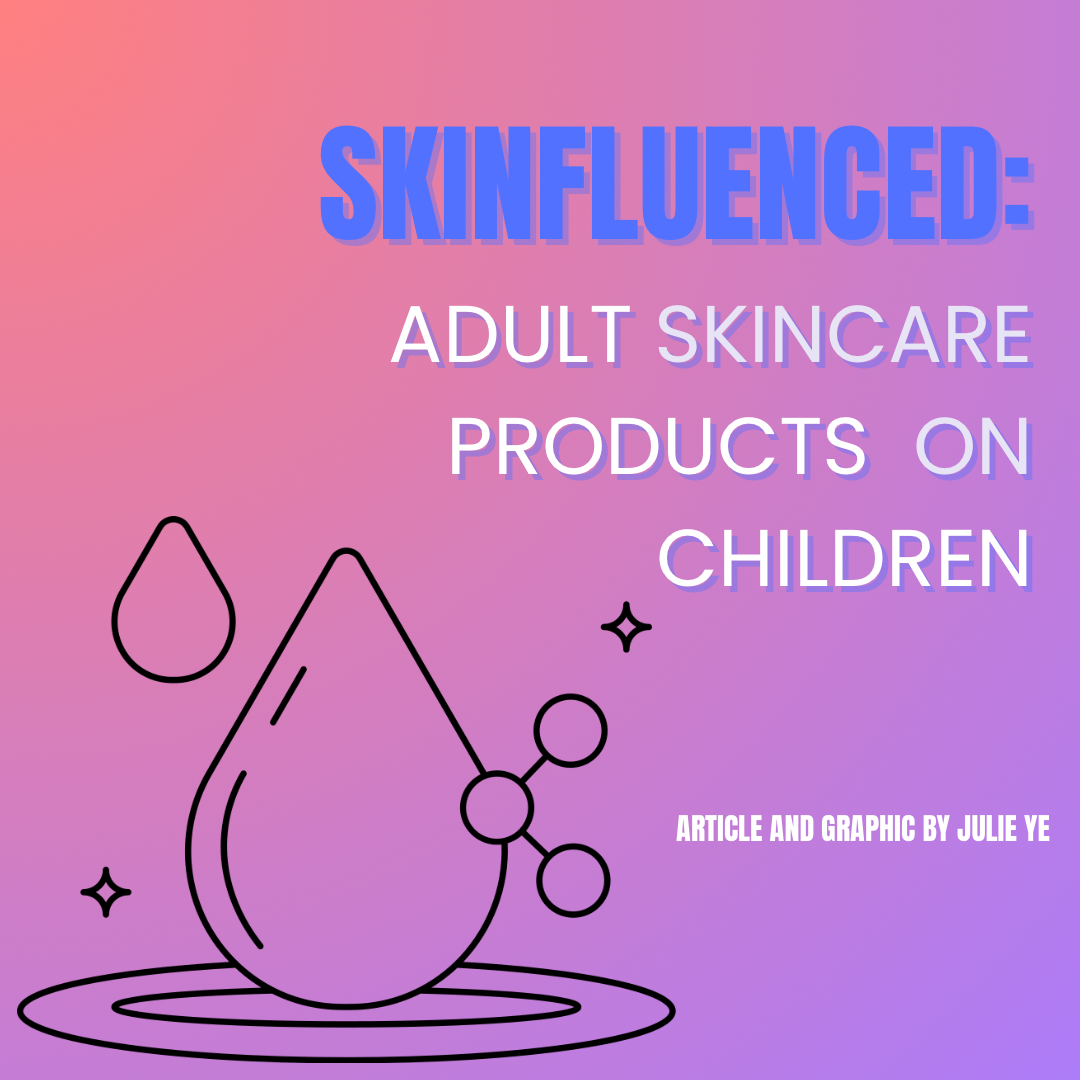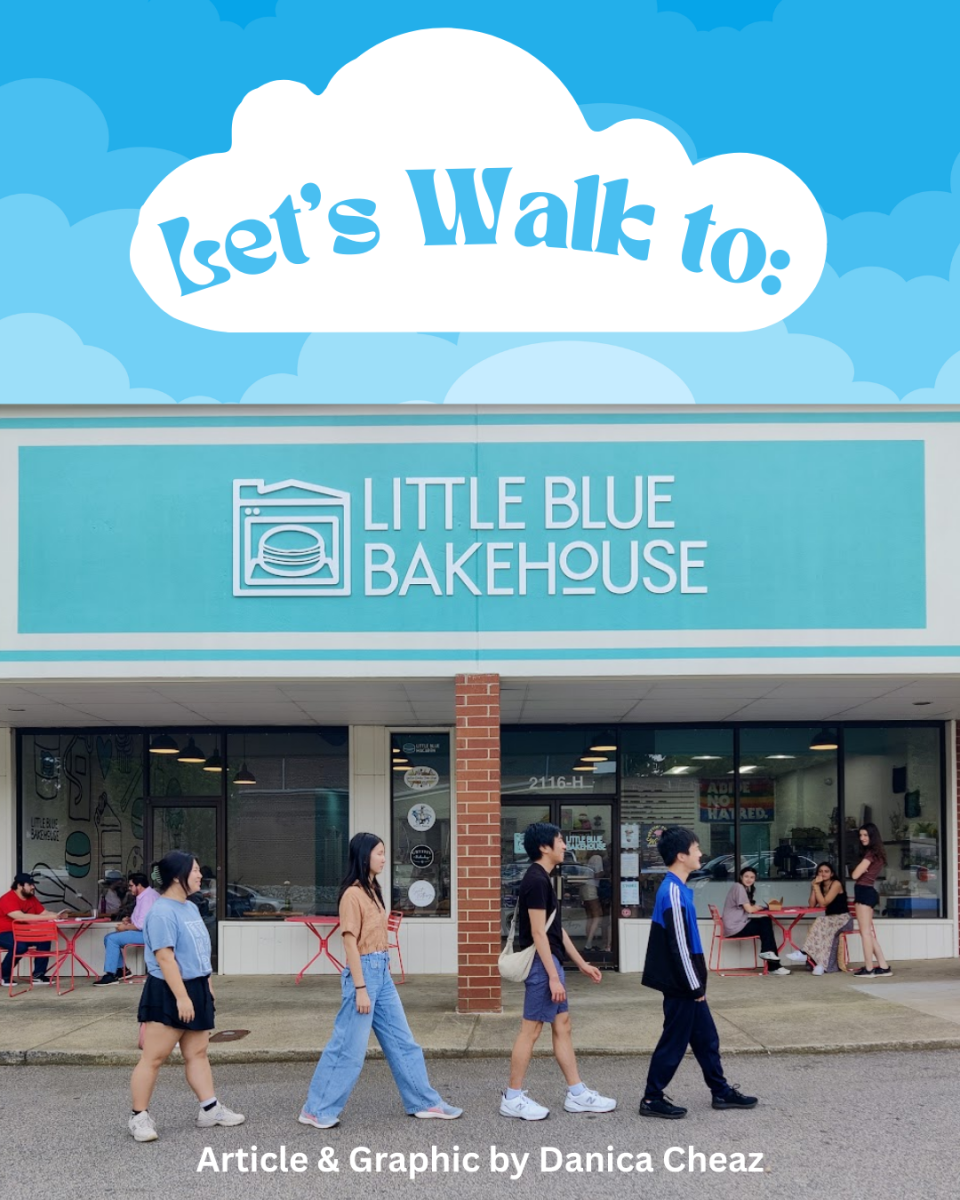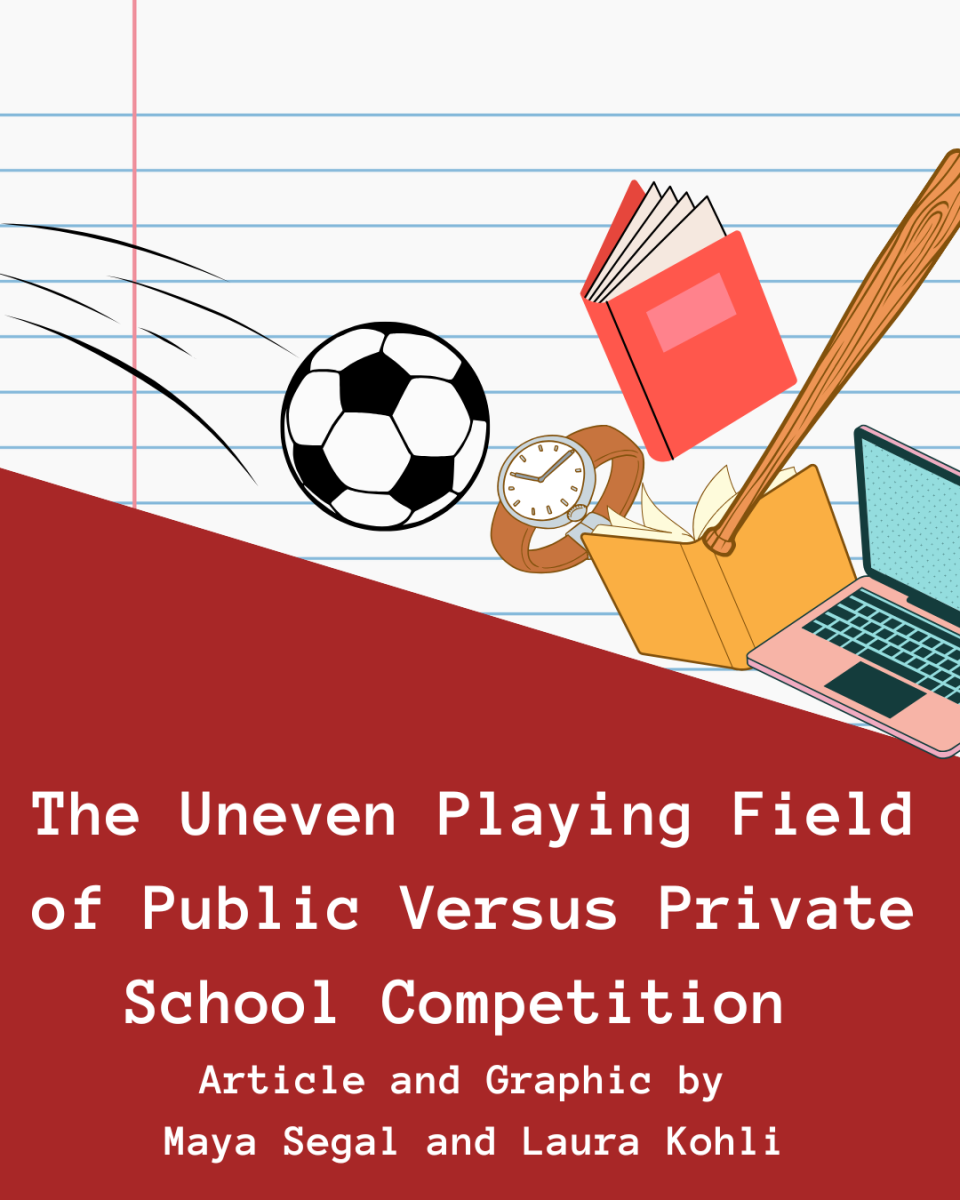For me, a skincare routine has always been a tedious task. I’d have to wake up earlier in the morning to not miss a single step, or risk breaking out or becoming sunburnt at some point in the day. I admire the “skinfluencers” of the internet; what they do is not easy, and it certainly isn’t an inexpensive hobby, either. The recent trend of sharing 10-step skincare routines consisting of serums, creams, scrubs and more is tremendously popular across all platforms, especially for young children.
It shouldn’t be any surprise that kids are heavily influenced by what they see. Every kid wants to model themselves around surrounding adults. It only becomes a problem when six-year olds are slathering retinol anti-aging cream onto their poreless faces. Skincare companies like Drunk Elephant, who preach about the integrity of their formulas, are also inadvertently contributing to the growing issue through their marketing. On platforms like TikTok, where younger generations spend a lot of time, content is tailored to users based on their interests. This often means that ads for brands like Drunk Elephant are specifically placed in front of pre-teens or teenagers, who might not have the full understanding of what clean beauty really entails.
The skincare industry, armed with persuasive advertising techniques and influencer endorsements, is capitalizing on parents’ willingness to indulge their children. A child doesn’t have $80 to spend on a snail mucin serum. Yet, when parents hand over their wallets without much further thought of the consequences, these young consumers enter the culture of excessive buying.
Parents are increasingly buying into their children’s desires to fit in by enabling internet-based wishlists, which consequently feeds into addictive behaviors. Without the proper research, both parents and children may not fully understand the products being used. For example, experts at UCLA Health have observed pre-teens and teens developing allergic contact dermatitis from using inappropriate skincare products, particularly those with active ingredients like retinol and peptides, which are intended for mature skin. These ingredients can irritate young, sensitive skin, leading to issues such as a compromised skin barrier, acne flares, rashes, and other forms of irritation. Retinol, derived from retinoic acid, is primarily designed to treat acne and is beneficial for adult or acne-prone skin. However, when used on children, it—along with AHAs and BHAs—can cause redness, irritation, and even long-term damage. The overuse of such adult-grade products disrupts the natural skin barrier, making young skin even more vulnerable and potentially causing more harm than good.
Some people may argue that excessive skincare routines are “all in harmless fun.” However, what people fail to realize is that children are actually buying into chemical exposure. Under the Drunk Elephant FAQ section, there was a question asked: “Can Drunk Elephant be used by children?” In response, the company said that not every product in their line should be used by fans 12 and under. In general, using products containing high concentrations of active ingredients can be dangerous. Dr. Stacey Tull, a cosmetic dermatology specialist, agrees with this, and strongly urges tweens to stop using retinol.
An early exposure to beauty consumerism can also lead to an unhealthy reliance on products to feel self-worthy and confident. When children look at influencers and expect them to be the standard, it can have detrimental effects. These beauty standards can cause a child or teen to feel like their value is contingent on how they look—how clear their skin is, how shiny their hair is, how their body measures up to idealized beauty standards. The rise of social media influencers and beauty gurus makes it easy to conflate external validation with personal value.
While internet skinfluencers and mass consumption beauty brands bear some of the weight of the problem, it’s ultimately up to parents to protect their children from unnecessary and potentially harmful products. If professionals are not recommending these products, then parents should listen. By setting clear boundaries and prioritizing professional advice over mass-market trends, parents can help their children develop a healthier relationship with beauty products and self-care.








Niyanthri Thyagarajan • Feb 26, 2025 at 8:30 AM
this is an attack against my cousin whos a sephora 12 yr old. i like it <3